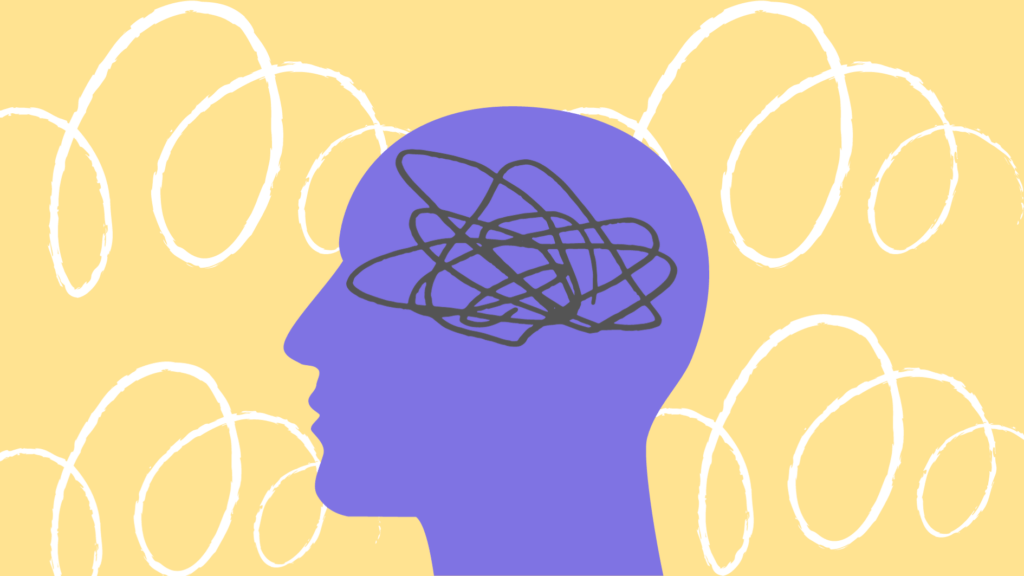Continuing with our coverage for Mental Health Awareness Week, Sapling editor Hannah has some hard truths to share about the representation of mental illness in YA literature—and the harm that is caused when these representations are done poorly.

Content warning: This article contains general discussion of mental illness, but particularly focuses on self-harm. Check out a list of mental health resources below.
The best YA novel I’ve read in terms of mental health representation comes from the UK. It’s called A Quiet Kind of Thunder, by Sara Barnard, and the main character, Steffi, lives with severe social anxiety. She takes medication, she goes to therapy, and the everyday social interactions most of us take for granted are nightmarish obstacles for our protagonist. But she’s also a fleshed out, normal human being with a vivid inner life and enough agency to propel her own story forward and, most importantly, to demonstrate that her life isn’t horrible just because of her struggles.
It’s clear that Barnard dedicated a lot of research into social anxiety, and the result is tangible in every element of the story: it’s a romance, but Steffi isn’t saved by her relationship; she’s an outcast at school, but she has her own friends; she’s anxious, but she possesses her own kind of confidence and agency, and she knows exactly who she is, what she wants, and how to get there. She’s not ‘cured’ by the end of the story, and nor should she be. She doesn’t need saving. She can save herself.
It’s clear that Barnard dedicated a lot of research into social anxiety, and the result is tangible in every element of the story
In an example closer to home, there’s Eileen Merriman’s 2017 debut Pieces of You. Like A Quiet Kind of Thunder, it’s a romance; like Steffi, the main character, Rebecca, struggles with mental illness, though of a different kind. Rebecca is sexually assaulted on the way home from a party, and she develops PTSD that manifests itself most acutely in self-harm. The first one to find out about Rebecca’s self-harm is Cory, her love interest. And this is where Pieces of You diverts from A Quiet Kind of Thunder’s sensitive and thoughtful portrayal of mental illness, and mangles it:
“‘Here goes,’ Cory echoed, his eyes on the crimson line of blood on his skin. [Cory and Rebecca are taking a blood oath, having both cut their wrists.]
‘I hope you don’t have AIDS,’ I said, and we rubbed our wrists together. The knife lay on the boards between us, a chocolate smear across the blade.”
There are so many, many things wrong with this, as anyone who has ever struggled with these things will know. Rebecca’s self-harm is turned from a destructive and painful habit to a romantic act, a symbol of the ‘beautifully tragic’, which effectively makes a pernicious and isolating addiction (because that’s what habitual self-harm is) into a plot point, a commodity, a degrading delegitimisation of the act.
Let me be clear: I’m not writing this as a witch hunt, or to condemn one of Aotearoa’s very few prolific YA authors. There are redeeming features to Pieces of You, and its portrayal of PTSD and the fallout from sexual assault is accurate, nuanced, and important. But I haven’t been able to bring myself to read it again since the first time I did in 2019, because it hurt me then, and I know it will still hurt me now. And what stings most acutely is that this is how most representation of mental illness in YA makes me feel.
YA is one of the very few spaces where discussions about mental illness are uninhibited and laid bare…[but] when it comes to mental illness, a lot of YA is failing
We don’t talk enough about mental illness. It’s one of society’s most stigmatised and misunderstood issues. YA is one of the very few spaces where discussions about mental illness are uninhibited and laid bare, which we can credit to YA’s historical ‘golden age’ and the rise of the ‘problem novel’ of the 1970s, during YA’s fledgling years as a genre—titles like Go Ask Alice (1971) and Judy Blume’s Forever (1975) exemplify this era of tackling issues like addiction, abuse, sex, and death. Even S.E. Hinton’s The Outsiders (1967)—often regarded as one of the first YA novels in that it was written intentionally about young people and for young people—is notoriously gritty.
The YA genre is known for being a no-adults-allowed, no-holding-back space where issues that are relevant to teenagers but swept under the rug by society are given their much-needed airtime. YA is reflective of the turbulent time that is adolescence, and that’s what I love most about it: it provides a space for young people to understand themselves and their experiences, and the genre acknowledges both the perils and triumphs of growing up.
But with this comes a hefty responsibility. And, when it comes to mental illness, a lot of YA is failing.
Writing, at least when it’s with the intention to be commercially published, is often influenced by the motivation of what would be relevant to the target audience. Publishing relies on this notion, too, being ultimately a business. And the notion that mental illness is relevant in YA is not inherently bad—after all, representation is power, and bringing up these discussions reflects literature’s ability to serve as activism, to break new ground, to bring up the uncomfortable. And, of course, the prevalence of mental illness in YA literature reflects society’s increasing understanding and acceptance of mental illness. But the problem arises when mental illness becomes a selling point. When it’s capitalised as an asset for publishers and writers to strive for; when it becomes a commodity.
When [mental illness] becomes objectified by the industry as a selling point, publishers produce what appear to be poorly researched, stereotype-laden, shallow representations that do more harm than good
But mental illness is not a commodity. It’s not a profit-making plot device. It’s a lived experience, a nuanced and complicated and painful one, and when it becomes objectified by the industry as a selling point, publishers produce what appear to be poorly researched, stereotype-laden, shallow representations that do more harm than good. They produce books like Pieces of You, which had the potential to be empowering, but its appeal seems to have come at the expense of thorough research and consultation with the community at heart. I don’t know how much research went into the writing of this book—or who was consulted—but I doubt the story would be what it is had those with lived experience of self-harm had been centred in the process.
We need more representation of mental illness in YA, but it needs to be done right. I believe in the idea that writing is a social responsibility, and we owe it to those whose experiences we are writing about, when those experiences are not our own, to do them justice. It’s encouraging to see more publishers inviting Own Voices stories, and to see an increasing number of mentorships, awards, and even whole publishing houses dedicated to uplifting historically excluded communities in literature. There are also plenty of resources available to help writers tackling mental illness—a favourite of mine is this factsheet by Samaritans UK, about how to cover suicide and self-harm in literature.
If you’re writing about mental illness, and it’s not from personal experience, you need to do your research beyond a Google search or speaking to your friend with a psychology degree. You need to be willing to consult with those whose lived experiences you are using. You need to be willing to be wrong, to hear hard truths, and to understand that the mental illness community is not a homogenous one, and there is a diversity of experiences and perspectives that come with us. And if you’re not willing to do that, then I think you need to reconsider what—and whose—stories you’re choosing to tell.
Mental health resources (courtesy of the Mental Health Foundation)
https://mhaw.nz/—Mental Health Awareness Week website
Free call or text 1737 any time for support from a trained counsellor
Lifeline – 0800 543 354 (0800 LIFELINE) or free text 4357 (HELP)
Youthline – 0800 376 633, free text 234 or email talk@youthline.co.nz or online chat
Samaritans – 0800 726 666
Suicide Crisis Helpline – 0508 828 865 (0508 TAUTOKO)
Healthline – 0800 611 116
A comprehensive list of available helplines can be found at https://mentalhealth.org.nz/helplines.
Editors’ note: The Reckoning is a regular column where children’s literature experts air their thoughts, views and grievances. They’re not necessarily the views of the editors or our readers. We would love to hear your response to any of The Reckonings – join in the discussion over on Facebook.

Hannah Marshall is a reader, writer, and advocate for New Zealand books from Wellington. She has a Bachelor of Arts in Media Studies from Te Herenga Waka—Victoria University of Wellington, and she is currently doing her Master of Arts in Creative Writing at VUW's International Institute of Modern Letters. Her debut YA novel, It's a Bit More Complicated Than That, is being published by Allen & Unwin in 2025.



